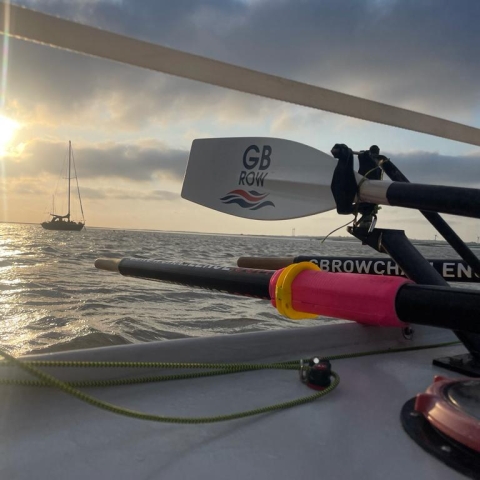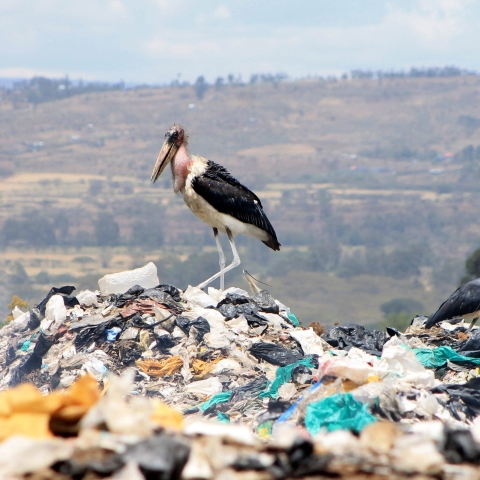

Professor Alex Ford, a world-leading expert in environmental science, is the first academic from the UK to join the board of the International Panel of Chemical Pollution
25 January 2024
6
A University of Portsmouth researcher has become the first UK academic to serve on the Board of the International Panel on Chemical Pollution (IPCP).
Professor Alex Ford from the School of the Environment and Life Sciences was elected by IPCP members to join the independent assembly of scientists.
The IPCP provides a platform for experts across the world to inform regional and global guidance for science policy, helping to shape chemicals and waste management policies.
It has been estimated that pollution is responsible for 9 million premature deaths annually, and we are estimated to use several hundred thousand chemicals in our everyday lives, many of which are toxic to ourselves and wildlife.
Professor Ford has spent over 20 years working as an environmental scientist with expertise in Marine Biology, Environmental Toxicology, Parasitology. Last year, he was named in a list of the top two per cent most cited scholars in the world, produced by Stanford University and Elsevier.
I am very honoured to be elected to join the IPCP, which plays an important global role in steering discussions about banning and regulating various chemical pollutants to safeguard human and wildlife health.
Professor Alex Ford, School of Biological Sciences
Reacting to joining the IPCP, he said: “I am very honoured to be elected to join the IPCP, which plays an important global role in steering discussions about banning and regulating various chemical pollutants to safeguard human and wildlife health.”
“We are facing a triple planetary crisis from climate change, biodiversity loss and pollution. We urgently need to get better at regulating those chemical compounds we know to be toxic and preventing further harmful chemicals from getting on the market. For example, our ecosystems are still being impacted by industrial contaminants we banned several decades ago. The United Nations is in the process of forming a Science-Policy panel to better regulate chemicals, waste and pollution. The IPCP is an important independent voice moving forward in this process.”
Professor Ford has worked on several high-profile projects as part of his work with the University’s Institute of Marine Sciences. These include a recent study which found high levels of drugs in the sea off the south England coast, and looking at the effects of pollutants on wildlife and humans.
He recently co-authored a paper that was coordinated by the IPCP, which called out potential conflicts of interest around global plastics treaty negotiations.
The feature paper, published in the journal Environmental Science & Technology, warned plastic and chemical industries are using similar tactics as Big Tobacco and Big Oil, to manufacture doubt and sow misinformation.
The IPCP was established in 2008 due to an increasing awareness of the chemical cocktail humans and the environment are exposed to, and due to the identification of a critical gap in the communication between science, policy and the public.
“We welcome Professor Alex Ford's willingness to support the work of the IPCP and congratulate him on being elected to join the board”, said Marlene Ågerstrand, board member of IPCP and Associate Professor at Stockholm University.
“We are looking forward to working with the current board towards increasing independent academic researchers’ involvement in informing regional and global policymaking, such as the current efforts to form a global science-policy panel focused on the sound management of chemicals and waste and to prevent pollution."
More like this...
No sex please - marine life turned off by swimming in plastic chemicals
23 November 2023
3 minutes

How citizen science is saving our seas
Ocean adventurers teaming up with scientists can improve the health of our seas, claims new research from the University of Portsmouth.
16 January 2024
4 min read

Scientists Flag Conflicts of Interest Ahead of UN Plastic and Chemical Talks
10 November 2023
7

